

eoe journal
November 2025 eoe journal
As we enter October and celebrate National Disability Employment Awareness Month, I find it an appropriate time to think about the uniqueness each of us brings to the table in the workplace. In particular, people with disabilities often approach challenges in the workplace with creativity, resilience, and fresh perspectives that can spark innovation. Their experiences help teams think outside the box, and that diversity of thought benefits the experience for everyone within the organization.
NDEAM is a reminder that disability is not a limitation, but a part of the wide spectrum of human uniqueness. When we highlight and celebrate those differences, we create spaces where everyone feels valued and included. By embracing accessibility and supporting equal opportunities, we not only honor the contributions of people with disabilities but also build stronger, more dynamic communities and workplaces.
Lisa Petty, Editor Equal Opportunity Employment Journal
The eoejournal is published bimonthly by EOEJournal, Inc. The ownership and management of EOEJ fully and actively support equal opportunity for and advancement of all people without regard to race, color, religion, gender, national origin, sex, pregnancy, citizenship, ancestry, veteran status, marital status, physical disability, mental disability, medical condition, age, gender identity, and sexual orientation or any other characteristic protected by state or federal law.
Advertising and Editorial mailing address:
7000 N. 16th Street Suite 120-315 Phoenix, AZ 85020
Phone: 602-604-9133

"Don't worry about
in. The things that make people think you're weird are what makes you you, and therefore your greatest strength."
- Birgitte Hjort Sorensen

IfShould You Apply for Tech Jobs You’re Underqualified For?
by Nick Kolakowski
you’re currently on the job hunt, you’ve no doubt stumbled onto a job posting that excites you. There’s just one little problem: the job’s experience and skill requirements might seem a little out of your reach, especially if you’re a relatively new tech professional. Should you still apply?

Given the demand for tech talent ( and the historically low tech unemployment rate ), you might have a shot at a job that initially seems like it’s out of your reach—provided you can convince a recruiter and/or hiring manager that you not only have at least some of the skills necessary for the position, but also an aptitude for growth. More than one company has hired someone relatively inexperienced based on their potential. Before you dismiss any position, there are several compelling reasons to aim high:
Faster Growth: Stepping into a challenging role can accelerate your learning curve. You’ll be pushed to develop new skills and gain valuable experience that might take years in a more familiar position.

Teledyne provides enabling technologies for industrial growth markets. We have evolved from a company that was primarily focused on aerospace and defense to one that serves multiple markets that require advanced technology and high reliability. These markets include deepwater oil and gas exploration and production, oceanographic research, air and water quality environmental monitoring, factory automation and medical imaging.

Career Advancement: By demonstrating your ambition and ability to adapt, you position yourself for quicker promotions and career progression within the company.
Higher Earning Potential: Seniority often comes with a significant pay bump. Landing a stretch role can jumpstart your earning potential and set you on a trajectory for long-term financial success.
When sitting down to actually work on your application , here’s how you can position your skills in the best possible way: Highlight Transferable Skills: Focus on transferable skills (such as communication, problem-solving, adaptability) that are invaluable no matter what the position. Describe how you used those skills to achieve outsized results in your previous roles.
are you a great fit for this particular role? What can you add that nobody else can?
Beyond the Resume: Alternative Credentials for Newcomers

Quantify Your Achievements: Speaking of results, make sure to draw a bright line between your actions and outcomes. Did you help your company achieve 50 percent cost-savings via your coding? Did you figure out a whole new line of business? Remember, pretty much any kind of positive data is useful.
Learning Agility: Show you can grow in any role. Tailor your resume, cover letter, and other application materials to portray you as someone who adapts quickly to new circumstances. If you’ve had to quickly adopt a skillset or knowledge base to succeed, make sure to mention that.
Personalize: You’ll need to show the recruiter or hiring manager that you care deeply about that specific job. Why
ieee.taleo.net/careersection/2/jobsearch.ftl

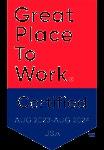


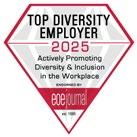
If you’re fresh out of school or transitioning careers, traditional work experience might be scarce. Here’s how your non-traditional background can still impress a recruiter or hiring manager:
Personal Projects: Showcase your skills and initiative with well-documented personal projects. Open-source contributions or freelancing gigs can demonstrate your real-world capabilities.
Academic Achievements: Highlight stellar grades, academic awards, or research projects that showcase your problem-solving skills and subject-matter expertise.
Online Courses and Certifications: Demonstrate your commitment to continuous learning by showcasing relevant online courses and certifications that have equipped you with valuable skills.
Volunteer Work: Did your volunteer work involve using technology to tackle a social issue? Highlight how you adapted your skills to a new environment and delivered measurable results. While companies seek experienced candidates, they also value ambition and raw talent. By effectively showcasing your transferable skills, passion to learn, and potential for growth, you can land a “stretch role” and jumpstart your career.
Article provided by Dice.com











Your Next Opportunity Awaits!
Join a Global Leader in
Flavors
& Fragrances Be Challenged. Be Rewarded. Be Part of a Great Experience!

Takasago is a major global leader and producer of flavors and fragrances providing innovative solutions in flavors, fragrances, aroma ingredients, and fine chemicals.
For over 100 years, Takasago has invested heavily in research and development to remain at the forefront of innovation in flavors and fragrances. We are committed to sustainability, focusing on natural and environmentally friendly ingredients.
Takasago’s corporate culture is shaped by its core values of innovation, customer focus, sustainability, and respect for diversity. The company promotes a collaborative, inclusive environment where employees are encouraged to think creatively while maintaining high ethical standards.
Join Our Growing Team
Takasago is actively seeking motivated individuals to join us in the exciting world of flavors, fragrances, and fine chemicals. Whether you're just starting your career or seeking a leadership role, we have opportunities for you.
Open positions include:
Material Handlers • Compounders • Lab Technicians • Flavor Technologists
Flavorists • Account Managers • Manager roles
Explore Opportunities and Apply Today!
Click the link below to view all the exciting open positions and stay updated with new opportunities:
Takasago Career Center
Connect with Takasago and Experience the Difference!
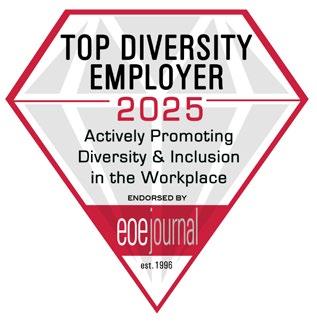
Are You Ready for National Disability Employment Awareness Month (NDEAM)?

NDEAM is led by the U.S. Department of Labor’s Office of Disability Employment Policy (ODEP), but its true spirit lies in the many observances held at the grassroots level across the nation every year. The Campaign for Disability Employment encourages organizations of all sizes and in all industries to participate in NDEAM.
For specific ideas on supporting NDEAM, visit the website www.dol.gov/ndeam. Suggestions range from simple, such as displaying the 2025 poster, to comprehensive, such as implementing a disability education program. How ever you choose to take part, you’ll be playing an important role in fostering a strong workforce, one where every person is recognized for his or her abilities—every day of every month.
How can you celebrate NDEAM?
There
are lots of ways! Explore the ideas below, designed for employers and employees:
The ideas below are just a few ways employers and their employees can participate, during October and all year long. For additional inspiration, check out our page “ Year-Round Employer Strategies for Advancing Disability Employment .” Review Policies
NDEAM is a timely opportunity to review your company’s policies and ensure that they convey a commitment to an accessible workplace culture.
Create a Display
NDEAM is also a great time to freshen up bulletin boards in break areas or other workplace locations frequented by employees by posting positive messages about your company’s commitment to providing accommodations to people with disabilities. Start by displaying this year’s NDEAM poster . Additional materials include the “ What Can YOU Do? ” poster series.
Held every October, NDEAM is a fitting time to educate about disability employment issues and celebrate the many and varied contributions of America’s workers with disabilities. The
2025 NDEAM theme will be “Celebrating Value and Talent,” and as part of the lead up to America’s 250th anniversary in 2026, this year’s observance will highlight the achievements of Americans with disabilities both past and present.


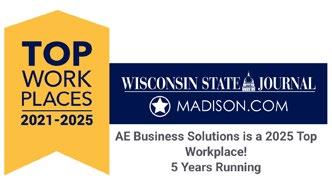


At Segal, our mission is to provide trusted advice that improves lives. How? With expert teams delivering innovative solutions that help organizations provide health and financial peace of mind to their people. Our differences make us stronger
We’re one of the largest independent human resources and employee benefits consulting firms today. We’re team-oriented with deeply held values, proud to be making a difference in the lives of so many.
Become a part of something bigger
Segal is actively recruiting top talent. See our job openings on LinkedIn. And visit us at segalco.com/about-us/careers to learn how you can become a part of our team. segalco.com

Here in the First Nationa family (First National Bank Texas, First Convenience Bank, First Heroes National Bank, First Community Mortgage and First Community Services), we are fiercely proud of our past and excited about our bright future. Independently owned, with more than 300 locations in Texas, Arizona, Arkansas and New Mexico, we offer growth and advancement in a fun and fast-paced environment. Our company provides and educational atomosphere, enabling employees to achieve their highest career potental. We are pleased you have consid-
WHY CHOOSE US?
Here in the First Nationalfamily (First National Bank Texas, First Convenience Ba nk, First Heroes NationalBank, First Community Mo rtgage and First Community Servi ces), we are fiercely proud of our past and excited about our bright future. Independently owned, with more than 300 locations in Texas, Arizona,Arkansas and New Mexico, we offer growth and advancement ina fun andfast-pacedenvironment. Our company provides an educational atmosphere, enabling employees to achieve their highest career potential. We are pleased you have considered advancing your career with us.
No matter what your specialty is, chances are there is a position for you with the First National family. Positions range from frontline sales to customer service, clerical, support services and managerial positions. Our account holders are very diverse, and we are proud to accommodate them with a diverse workforce that includes bilingual employees.


Train Supervisors
Within any workforce, supervisors are the closest people to the organization’s employees. As part of NDEAM, consider conducting training to ensure that supervisors understand their role in fostering a disability-friendly workplace culture. Such training may include a review of relevant policies, including the process for providing reasonable accommodations. One easy way to provide such training is to make use of available “turn-key” training modules and available materials, such as those available from the Campaign for Disability Employment .
Educate Employees
Companies committed to disability-friendly workplaces may consider reinforcing that commitment regularly and effectively to employees. NDEAM offers an opportunity to do this, whether through disability training or informal educational events such as brown-bag lunch discussions. Several readyto-use resources can assist in facilitating such activities, such as disability etiquette materials and videos with accompanying discussion guides. Another option is to contact local disability organizations to see if they offer workplace training programs.
Publish Articles
NDEAM offers timely and fresh content for an employee newsletter or internal website. Articles may address a range of topics, such as general information about the process for requesting reasonable accommodations or perhaps recognizing the contributions of employees with disabilities—either in general or on an individual level. In addition, your company’s top executive may send a message to all employees recognizing NDEAM.
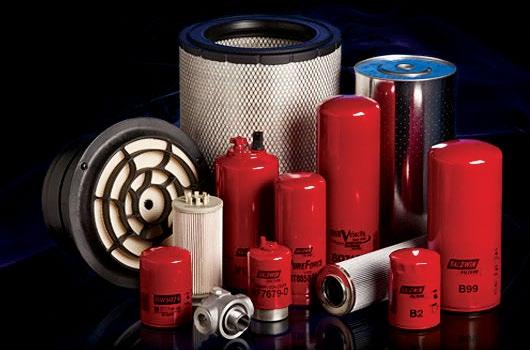


Feature NDEAM on Social Media
NDEAM provides an interesting hook for content on social media platforms, including Facebook, Instagram, LinkedIn, and X—include the hashtag #NDEAM! Organizations can also use our sample key messages to help incorporate NDEAM into their social media activities.
Issue an NDEAM Press Release
Employers can issue a press release to local media announcing their involvement in NDEAM. Use our “ fill-in-theblank ” template to customize your pitches to local media.
Participate in Disability Mentoring Day
Disability
Mentoring Day promotes career development for youth with disabilities through hands-on programs, job shadowing, and ongoing mentoring. The nationwide observance is held the third Wednesday of October, but companies can host their events any day of the month (or year for that matter).
Article provided by www.whatcanyoudocampaign.org


Since 1936 R.L.Coolsaet Construction Company has been building a record of solid performance in our field. We have qualified personnel, first-class equipment and available finances to successfully complete any pipeline project from small diameter to forty-two inch in size.

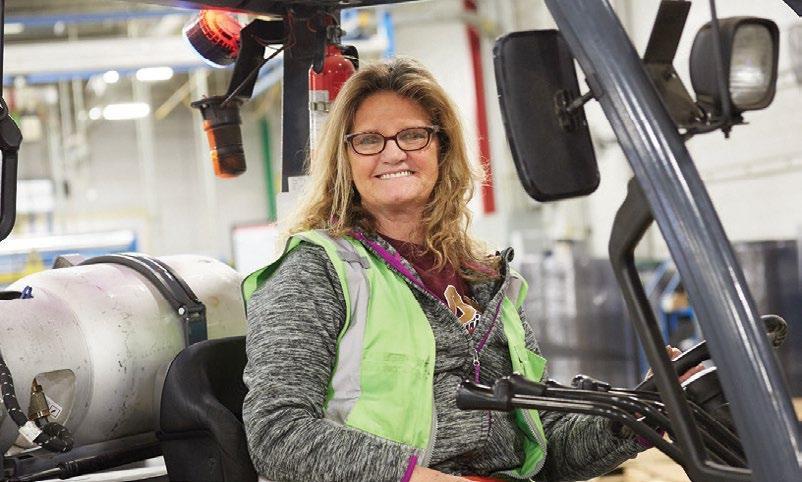


MAKE AN IMPACT





A passion for INCLUSION AND EMPOWERMENT
At UCLA Health, it takes people from all backgrounds and varied perspectives to make our world-renowned care possible. That’s why we foster a culture where all are welcome, valued, and inspired to be their authentic selves. We’re proud to be one of U.S. News & World Report’s top hospitals in the country.
If you’d like to contribute to a world-class health provider within a setting that inspires and empowers great achievements, explore our openings in:
• Nursing
• Allied Health
• Research
• Nutrition
• Administrative/Clerical/Float Pool
• Managerial/Executive
• Hospital & Facilities Support
• IT
To learn more and apply online, visit us at UCLAHealthCareers.org
Nine Non-Clinical Nursing Jobs

You can do a lot with an RN degree besides nursing in a clinical role. Some of the top areas for non-bedside nursing jobs are business administration, management, education, research, public health, and consulting. It’s also worth noting that some of the least stressful nursing jobs are those that involve little to no direct patient care. Check out these non-nursing jobs for nurses grouped by major area of focus:
PATIENT EDUCTION AND HEALTH PLANNING
1.Case Management Nurse
Case management nurses coordinate all aspects of individual patients’ medical care. This entails working with patients, doctors, and insurance companies to ensure clients receive the care and services they need both within healthcare facilities and in the larger community. You could work in hospices, rehab centers, long-term care facilities, or other settings.
Benefits:
• Work with a variety of professionals in different settings, so it never gets boring
• Empower patients to take control of their health issues and path to healing
• Play an essential role in preventative care, often for those who need it most
2. Diabetes Educator
Diabetes educators train patients to use blood glucose meters and insulin pens, help patients understand the importance of proper nutrition, and provide guidance about healthy self-care behaviors. They might work with individual patients or lead group classes. Becoming a Certified Diabetes Educator can boost your employment prospects.
Benefits:
• Work directly with people, helping them care of their health and prevent future disease
• Specialize in an area with high demand
3. Life Care Planner
Life care planning is case management on a larger scale. These professionals design plans for patients who require ongoing care for the remainder of their lives due to injury, illness, or disability. Life care planners evaluate patients’ medical histories and consult with their doctors to figure out what type of treatments will be needed over the long term, how much that care will cost, and how it will be paid. They adjust plans to ensure that patients receive the care they need.
Benefits:
• Use your nursing skills to connect with clients on a deeper level to support and guide them when they are most vulnerable
• Provide relief to patients’ families as you help navigate complex issues that arise
4. Nurse Navigator
Patients with complex illnesses or conditions often rely on nurse navigators to help them find their way through the healthcare

system. Navigators provide information and resources, answer patients’ questions, and coordinate care with various medical team members. They also address barriers to treatment, such as financing or transportation challenges.
Benefits:
• Be the bridge between people who are struggling and the resources that can improve their health and quality of life
• Play a respected role in keeping the healthcare system running as efficiently as possible
5. Public Health Nurse
While most nurses provide one-on-one care to individual patients, public health nurses are responsible for looking after the entire community. They identify and track disease outbreaks, organize immunization drives, and provide health services for underserved populations. You can become a public health nurse by simply being licensed as an RN. Further specialized training is not usually required.

CHARLES GEORGE VA MEDICAL CENTER

Benefits:
• Promote health and help prevent disease on a much larger scale
• Focus on the “big picture” while also considering individuals’ needs
• Provide easy-to-access services that assist people who may not otherwise seek help (for example, birth control and family planning resources)
BUSINESS MANAGEMENT AND ADMINISTRATION
6. Nurse Auditor
Nurse auditors are responsible for reviewing clinical documentation to ensure the information is accurate and complies with all regulatory requirements. They check to see that patients’ treatments and procedures are coded correctly, and that billing records adhere to legal standards. Experience with medical coding or case management can help you move into this position.
Benefits:
• Use your sharp eye to spot inconsistencies that can lead to huge errors in medical records
• Help patients and healthcare providers immensely without providing direct patient care
• Work methodically with data, without the potential emotional investment of bedside nursing jobs
7. Nurse Manager
Your experience with the day-to-day realities of nursing work can prepare you to be an effective nurse manager. In this role,

you recruit and supervise staff, manage budgets, and look for ways to improve patient care while keeping costs down. You might be responsible for a single department or an entire facility. Many employers look for candidates with a Master of Science in Nursing (MSN) degree.
Benefits:
• Be the leader who makes a positive difference in the nursing team
• Take care of diverse tasks, keeping your mind engaged as you work
• Play a mentorship role for staff with less experience
8. Nursing informatics specialist
Drawing on both technical and nursing knowledge, nursing informatics specialists use information processes and technology to manage health data and support the work of nurses.
NURSING continued on page 17






Our compassionate care nurtures lasting connections
Redeemer Health provides compassionate care across every stage of life.
Rooted in the tradition of the Sisters of the Redeemer, our mission to Care, Comfort, and Heal can only be achieved through our dedicated, compassionate employees. Each of us is the product of our experiences and here you will find a place that welcomes you, celebrates your success, and challenges you to do your very best.

The goal is to use data to streamline operations, reduce costs, and improve patient outcomes. It’s important to have strong skills in information technology; you may also want to look for a nursing school that offers a specific master’s program in nursing informatics.
Benefits:
• Help manage a team meaningfully from behind the scenes
• Use your nursing background in a unique way with technology
• Provide data-backed infor mation that can have a large impact
9.Risk Management Nurse
Identifying procedures that present a risk to patient safety or could prompt legal action against the facility is a task that is well suited to registered nurses. Jobs in risk management involve finding ways to minimize the risk of accidents, analyzing the root cause of critical errors, and making recommendations to ensure such incidents do not happen again.
Benefits:
• Do critical work preventing accidents, both minor and those that can result in serious injury or death
• Use analytical skills to deter mine the best way to prevent an incident from reoccurring
• Provide conf idence to employees that they are being protected in the workplace
Article provided by www.trade-schools.net


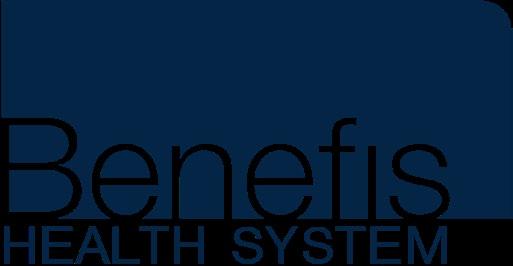


Benefis Health System is an Equal Opportunity Employer
1101 26th Street South • Great Falls, MT 59405






How Nurses Are Adapting to Technological Advancements
Healthcare is undergoing a rapid transformation, with technology at its core. Nurses, traditionally known for bedside care, are now integrating cutting-edge tools into their daily routines. From handling digital patient records to using advanced diagnostic systems, their role is no longer limited to manual tasks. Instead, nurses are becoming key players in managing healthcare technology, making patient care more efficient and accurate.
As these advancements continue, nurses must adopt new skills and adapt quickly. Technology has made many processes faster, but it also demands that healthcare professionals, especially nurses, stay updated. The future of healthcare is not merely about machines or software—it’s about how well nurses can work with these advancements to improve patient outcomes and streamline operations.


If you’re ready to make a difference, we’re ready for you to join our team.



Advancing Nursing Skills Through Education
As technology reshapes healthcare, nurses find themselves in a position where advancing their education is no longer optional. Many are choosing to pursue master’s degrees to stay relevant in this changing field. A master’s degree provides a deeper understanding of nursing and instills the leadership skills needed to oversee new technologies in patient care. Those who further their education can move into roles that involve managing healthcare technologies, such as overseeing electronic health record systems or implementing telehealth programs.
For nurses balancing work and education, an online master’s in nursing has become a popular choice. This program allows nurses to continue working while gaining new skills, as it offers a flexible schedule that fits their current responsibilities. Look up the keyword online masters in nursing degree programs on any search engine to learn more about these programs.
Mastering Digital Tools for Patient Care
The use of digital tools in patient care is becoming standard practice for nurses. Technologies such as mobile health apps, telemedicine platforms, and remote monitoring devices are increasingly integrated into healthcare settings. These tools allow nurses to track patients’ conditions in real time, reducing the need for frequent in-person visits and enabling more personalized care. Nurses can now monitor vital signs remotely, review patient data on the go, and communicate more efficiently with both patients and other healthcare providers. Adapting to these digital tools is not without challenges.

Nurses must develop strong digital literacy skills to fully utilize the technology at their disposal. Training on how to use these tools effectively is essential, as they need to interpret and act on data coming from multiple sources.
Utilizing Electronic Health Records (EHR) and Data Analytics
Gone are the days of handwritten charts and files—nurses now rely on digital records that offer a comprehensive view of a patient’s health history, treatments, and current status. EHRs help improve care coordination by allowing nurses and other healthcare providers to access up-to-date patient information instantly. This results in more consistent care, reducing the chance of errors and improving overall patient outcomes. In addition to EHRs, data analytics is becoming a powerful tool for nurses. Analyzing patient data helps predict trends, identify potential health risks, and improve care plans. For instance, data from EHRs can be used to track patient progress over time, providing valuable insights into the effectiveness of treatments. Nurses must now be comfortable working with data, as it allows them to offer more informed care and c ontribute to the overall improvement of healthcare delivery.
AI-Powered Diagnostics and Nursing Responsibilities
In recent years, artificial intelligence (AI) has shifted from being a futuristic concept to a practical tool in healthcare. Nurses now find themselves working with AI-driven diagnostics that assist in identifying conditions faster and with greater accuracy. For instance, AI can scan medical images to flag potential FUTURE continued on page 26







Find work that moves
Employers are Missing Out on Great Veteran Hires
Camaraderie. Resilience. Discipline. Critical thinking. Veterans come with a wealth of sought-after transferable skills. Masters of navigating uncertainty, veterans often perform at higher levels and have lower turnover rates than their civilian counterparts. Many spend years managing large numbers of people and expensive equipment. And their sense of responsibility means they are often the first on the job and the last to leave.
So, why do so many veterans face unemployment and underemployment after they hang up the uniform? Below, we explain what stops veterans – and their spouses –from getting the job offer, and what employers can do about it.

Recruiters Don’t Speak Military
Often, recruiters won’t recognize military job titles, ranks, and acronyms, never mind military credentials. They might have low expectations of veterans’ skills and fear that they won’t be a good fit for their workplace. Consequently, they’re more likely to reject veteran candidates or push them into specific fields, like security or trucking, for example. Indeed, 38 of the top 50 industries employ them at a lower rate than nonveterans.

AI Weeds Out Qualified Veteran Candidates
Most military jobs have a civilian equivalent, but veterans don’t screen like civilians because their job titles are different. AI-based applicant tracking software can put candidates in the reject pile if they lack industry keywords or have gaps in employment history. This disadvantages veterans and exacerbates the talent crunch by rejecting millions of candidates straight off the bat.
Job Requirements
Exclude Veteran Experience
Compared to others, veterans with an undergraduate degree have nearly three times more experience . Still, job descriptions can deter many before they even get to the application stage. Civilian terms for certain skills don’t always align with how veterans see their skills sets, leading them to rule out roles they are very qualified for. Moreover, postings often demand specialized hard skills that veterans will struggle to attain during their military careers.
Veterans Aren’t Linked in with Civilians
mainly due to frequent relocations, childcare issues, and an inability to transfer occupational licenses from state to state.
What Employers Can Do
Empowering veterans in the workplace isn’t charity. If you’re not hiring veterans, you’re missing out on a uniquely qualified talent pool of skilled leaders, technicians, and innovators. Here’s what you can do:
eliminate any preconceived opinions. Train recruiters in when it might be appropriate to waive industry experience requirements. And consider including veterans for ‘top of the funnel’ candidate engagement through recruitment and onboarding, and in promoting internal knowledge transfer.
Institute a Dedicated Veteran Hiring Track

Most military jobs have a civilian equivalent, but veterans don’t screen like civilians because their job titles are different. AI-based applicant tracking software can put candidates in the reject pile if they lack industry keywords or have gaps in employment history
Who you know matters. Veterans often haven’t had the opportunity to build a strong professional network, which can become a problem as they transition to the civilian workforce. (Plus, civilian workers usually lack strong connections with the veteran community.) Unsurprisingly, this leads many veterans to underplay or exclude their military service from job applications.
Military Spouses
Suffer, Too
Most military spouses are well qualified for any number of careers, and want or need to work. Yet, the unemployment rate among this group is 24 percent At the same time, wages are 25% lower than among the civilian population,
Use Data as Your Strategic Asset
Dig deep into your hiring data to pinpoint where veterans are dropping out of your recruitment funnel. Regularly review your employee data to establish which roles veterans tend to fill at your company. Delve into departments, seniority levels, and contract types. Ask yourself whether unseen barriers might be causing veterans to languish in roles below their experience level or to drop out altogether.
Level-up Internal Awareness
Don’t make veterans do all the heavylifting in translating their skills. Invest in training to elevate hiring managers’ understanding of the roadblocks and
Veterans themselves tend to believe that civilian hiring managers will devalue their military experience, and with good reason. Counter that by setting up veterans-only recruitment processes, careers sites, and internal referral programs that cater to their unique needs. Encourage veteran candidates to speak with existing veteran employees. And recraft job descriptions to focus on relevant skills rather than specific degrees or years of industry experience.
And Take Care of Military Spouses
Lack of childcare, frequent moves, and the demands of supporting a partner in the military make finding appropriate work intensely difficult for this group. Let them work flexibly, and from home, where possible. And be vocal in your support for military families so military spouses feel seen, included, and welcome at your company.
Adecco's Military Alliance program has been working to address the high unemployment rate for vets and their spouses. To help open doors, we provide job placement, career counseling, resume enhancement, interview training, and much more. And we partner with groups like the Military Spouse Employment Partnership to help entire military families find jobs they love. Learn more about how Adecco supports veterans and their families.
Article provided by Adecco.com Adecco specializes in building solutions that impact the world of work, connecting job seekers to opportunities across the country.

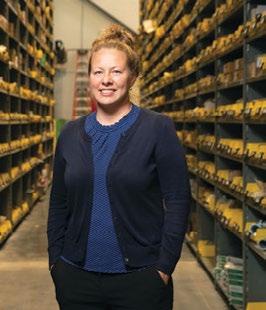



Come join our team of almost 2,000 collaborative, purposedriven professionals who are creating the clean energy system of the future. Together, we can lead the transition to a carbon-free, economically vibrant New York through customer partnerships, innovative energy solutions and the responsible supply of affordable, clean and reliable electricity. Think big, do good and help create a
At the New York Power Authority (NYPA), we work for the greater good and a stronger, sustainable New York.

How To Start a Manufacturing Career
Manufacturing experience refers to hands-on work in a production environment where associates create, assemble, or process goods. Individuals can gain this experience in various manufacturing jobs, from small workshops to large factories, and working with machinery, tools, and technology to produce goods. While specific tasks may The manufacturing industry is a dynamic and rewarding field, offering a wide range of career opportunities for people with various skill sets. From operating machinery to managing production lines, manufacturing jobs can be both fulfilling and financially rewarding. But how do you break into this industry? What qualifications and experience do you need to land your first manufacturing job?
Let’s break it down .


Build the Right Skills & Qualifications
To start in the manufacturing industry, you don’t necessarily need a college degree. Many entry-level manufacturing jobs require little more than a high school diploma or GED. However, having specific technical skills can make you a much more attractive candidate. Here are a few ways to gain the qualifications you need:
• High School Diploma/GED: Most entry-level manufacturing jobs will require this basic level of education. Courses in math, science, and technical education will be especially helpful.
• Trade Schools and Vocational Programs: If you’re serious about getting an advantage, consider attending a trade school or enrolling in vocational programs. These offer specialized training in manufacturing technology, machining, or welding.
• Certifications: Many manufacturing employers look for candidates with certifications like OSHA safety training or specialized training in areas like CNC machine operation or forklift driving.
• Apprenticeships: Apprenticeship programs are an excellent way to learn on the job while getting paid. You can gain hands-on experience in a controlled environment, working alongside experienced professionals who can show you the ropes.

A combination of education and certifications is often the best way to start. The manufacturing industry values workers who can demonstrate both knowledge and hands-on capability, so the more you can show off these skills, the better.
Gain Experience in the Field
Landing your first manufacturing job is all about gaining relevant experience, but you don’t have to have years of experience to get started. Here are some paths you can take to build up your resume:
• Entry-Level Jobs: Entry-level positions such as production assistants, machine operators, or assemblers are great ways to get your feet wet in this industry. Many manufacturing companies provide on-the-job training for these roles, so you can earn a paycheck while learning essential skills.
• Internships: Some manufacturing companies offer internship programs that allow you to learn about different aspects of the industry. Internships are especially useful if you’re looking to gain experience in a specific area like quality control or supply chain management.
• On-the-Job Training: Many manufacturing employers are willing to invest in training new workers, especially in specialized roles like CNC machining or robotics. These roles often offer a clear path for career advancement, so starting at an entry level and working your way up is a common strategy.
Page 26
equal opportunity employment journal November 2025
Once you get your foot in the door, don’t hesitate to ask questions, learn new skills, and take on more responsibility. The more versatile and adaptable you are, the more likely you are to progress in your manufacturing career.
Understand Common Manufacturing Jobs
Several types of manufacturing jobs are frequently in demand. Here are a few common ones:
• Machine Operators: These workers are responsible for operating heavy machinery like drills, presses, or CNC machines . This role requires attention to detail and an understanding of how the machines work.
• Assemblers: Assemblers put together products or components, following blueprints and ensuring that the finished product meets quality standards. This is an excellent entry-level job for people who are good with their hands.
• Quality Control Inspectors: Quality control inspectors ensure that products meet safety and quality standards. This role typically requires a good eye for detail.
Use a Staffing Agency to Find a Manufacturing Job
Starting a manufacturing career on your own can sometimes feel daunting, but it doesn’t have to. A staffing agency like NCW specializes in helping people connect with the right manufacturing jobs that fit their skills and career goals. Here’s why using an NCW recruiter can be valuable:
• Access to Multiple Opportunities: Staffing agencies often have partnerships with well-established companies in the manufacturing industry, giving you access to a wide range of legitimate job openings that you might not find on your own.
• Streamlined Job Search: Rather than applying to dozens of jobs individually, a staffing agency can match you with opportunities that align with your qualifications and preferences, simplifying your job search.
• Welders: Welding is a specialized skill in the manufacturing industry. Welders use high-heat tools to fuse metal parts together and often work on everything from automobiles to construction equipment. A welding certification can open many doors in the industry.
abnormalities so nurses and physicians can focus on targeted patient care. These systems sift through large amounts of medical data and provide quick insights that can significantly reduce the time to diagnosis and treatment.
The role of nurses isn’t diminished by AI—if anything, it has become more integral. Nurses act as the human link between complex AI systems and patients. They must understand AI outputs, use them to inform care decisions, and explain this technology-driven information to patients in a compassionate, relatable way. Rather than replacing human intuition, AI complements nursing by offering a deeper layer of data-driven support that nurses can use to improve patient outcomes.
Collaborating through Technology
The digital age has transformed how healthcare teams collaborate. Today, nurses no longer rely solely on face-to-face meetings or paperwork to communicate with physicians, specialists, and other health professionals. Instead, they work through integrated platforms where patient data, treatment plans, and updates are available to all members of the care team in real-time. This shift has allowed for smoother, faster coordination, which is crucial in delivering timely and cohesive care, especially for complex cases.
• Support and Guidance: NCW and similar staffing agencies offer guidance throughout the hiring process, helping you with resume preparation, interview coaching, and negotiating salaries.
When all is said and done, breaking into this industry requires a combination of the right education, hands-on experience, and determination to accomplish your goals. By understanding all that is required and leveraging resources like NCW, you can set yourself on the path to a rewarding manufacturing career. Ready to jumpstart your manufacturing career? Get in touch with NCW today!
Start Building Your Manufacturing Experience Today!
Manufacturing experience is your ticket to a rewarding career in this dynamic industry. Whether you’re just starting out or seeking to boost your career, NCW is here to help you find your next opportunity. Ready to take the next step? Let’s get to work!
Article provided by www.teamncw.com NCW goes beyond job requirements and resumes. NCW is your partner in workforce and talent solutions, operating with honesty and transparency since 2000. Build your team. Build your future. Not Your Average Staffing Agency
Integrating Robotics into Nursing
The use of robotics in healthcare is no longer a vision of the distant future. Robots are already being integrated into hospital environments to assist with tasks ranging from surgery to routine patient care. In some cases, robots perform precisionbased procedures, while in others, they handle repetitive or physically taxing tasks, like transporting supplies or assisting with mobility-impaired patients. Nurses are beginning to work alongside these robotic assistants, allowing them to focus more on patient interaction and complex decision-making.
This integration of robotics doesn’t diminish the need for human nurses. Instead, it enhances their ability to deliver better care by offloading routine tasks. Nurses are becoming skilled in managing these robotic systems, troubleshooting when needed, and ensuring they work in harmony with other technology.
Technology is not just transforming healthcare—it’s reshaping how nurses do their jobs every day. From AI-driven diagnostics to robotics, nurses are constantly adapting to new tools and systems that improve care delivery. These advancements bring new responsibilities and opportunities for nurses to enhance their roles, but they never replace the need for human intuition and compassion. With ongoing education and a willingness to adapt to these changes, nurses are well-positioned to thrive in the future of healthcare, where technology and human care go hand in hand. FUTURE continued from page 20
Nurses are at the center of this tech-driven collaboration. They are the ones often responsible for updating records, communicating changes in a patient’s condition, and ensuring all departments stay aligned. Such technologies allow nurses to quickly share patient information with multidisciplinary teams, reducing communication delays and improving treatment outcomes.

The Phoenix Union High School District is searching for the best-qualified applicants in all fields , but particularly in mathematics , science , special education , and ELD (English Language Development) .
Come join one of the most progressive portfolio districts in the country. Fill out an application on our website at phoenixunion.org or contact us at (602)764-1101.
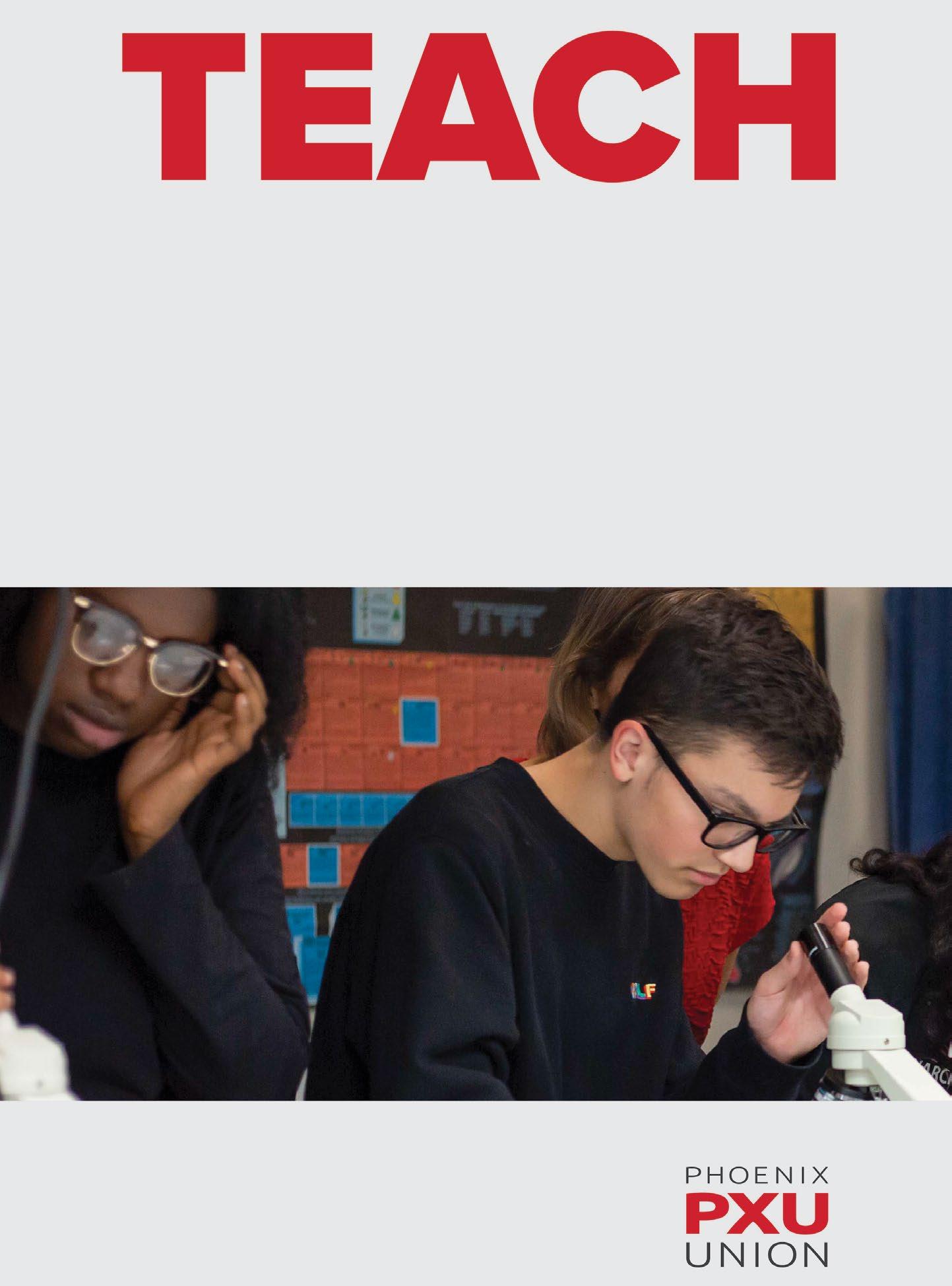
The Phoenix Union High School District is an Equal Opportunity Employer.
